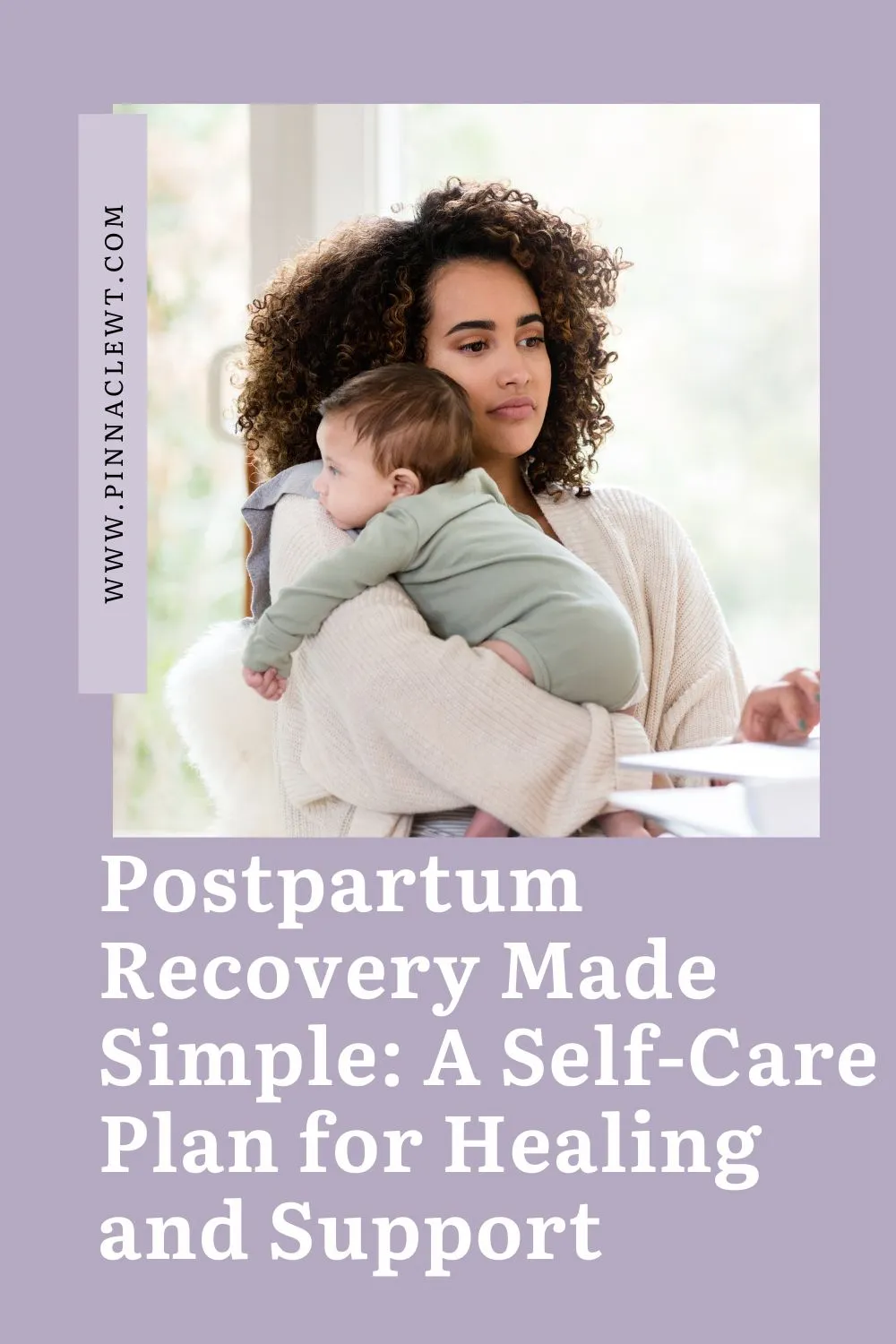Introduction: The Overlooked Postpartum Journey
When you’re pregnant, everyone seems to focus on you. Friends and family remind you to rest,eat well, and avoid lifting heavy objects. Medical professionals schedule frequent checkups to monitor you and your baby. But what happens after birth? The spotlight shifts to your newborn,and moms are often left to navigate one of the most challenging recovery periods of their lives
with little guidance or support.
The postpartum period is a time of profound physical and emotional healing, yet many womenfeel they’re on their own. From weakened core and hip muscles to the overwhelming hormonal shifts of early motherhood, postpartum moms deserve far more care than our society typically
provides.
But here’s the good news: with a simple self-care plan and the right support team, you canreclaim your healing and feel stronger than ever.
Why Postpartum Care Matters
After birth, your body is in a state of major healing. Ligaments that softened and lengthenedduring pregnancy need time to shorten and recover, your core and pelvic floor muscles may feel weak, sore or disconnected, and the emotional rollercoaster of new motherhood can leave you feeling depleted.
This is a vulnerable yet crucial time to focus on yourself, even if it feels hard to prioritize amidst the demands of a newborn. Proper postpartum care is essential not only for your physical recovery but also for your emotional well-being.
A Simple Postpartum Care Plan
1. Rest: Your Foundation for Healing
Rest is not a luxury; it’s a necessity for postpartum recovery. After delivery, your body is working overtime to heal wounds, regulate hormones, and adjust to the demands of breastfeeding or bottle-feeding.
How to make rest happen:
- Create a recovery area with cozy blankets, snacks, and water nearby so you can rest
while feeding or bonding with your baby. - Enlist the help of family and friends for household tasks or meal prep.
- Give yourself permission to rest without guilt—it’s a vital part of healing.
2. Nutrition: Nourish Your Healing Body
Your body needs extra nourishment in the postpartum phase to replenish what was depleted during pregnancy and birth.Protein is especially important for rebuilding tissues and supporting hormone regulation.
Quick tips to stay nourished:
- Focus on protein-rich meals like smoothies with protein and/or collagen powder, eggs with avocado, or chicken soup.
- Stay hydrated, especially if you’re breastfeeding, by keeping a water bottle with electrolytes close at hand.
- Consider having nutrient-dense snacks close by like walnuts with dates, or energy bites for easy fuel throughout the day.
3. Gentle Movement: Reconnecting with Your Body
Movement during the postpartum phase doesn’t need to be complicated to be effective. The goal is to reconnect with your core, glutes, and posture while gently addressing tension that built up during pregnancy.
Here are some simple ways to start moving intentionally:
Breathwork: Take slow belly breaths while holding your baby. This can be a calming way to connect with both your breath and your little one. As you work with a pelvic PT,they’ll guide you on how to progress this technique, including breathing into your lower back to help release tension that increased as your belly grew.
- Core Awareness: After taking a slow belly breath, gently draw your belly toward your
spine as you exhale. Practice this while lying on your side, reclined sitting, or even while seated in the car. This is a small but powerful step in reconnecting with your deep core muscles, setting the foundation for rebuilding strength. - Glute Engagement: Your glutes are vital for postpartum strength and stability—and they tend to atrophy during pregnancy, especially in the later months. To wake them up:
- While standing with your baby, check in with your glutes by slightly rotating your
thighs outward (avoid tucking your tailbone under). You should feel your glutes
activate without your back muscles, hamstrings, or hip flexors trying to take over. - Shift your weight onto one leg and feel that side engage. Then restart and try
shifting to the other leg. It’s not uncommon for women to feel better connection
to one side of their hip muscles than the other. - When getting up from a chair, focus on using your glutes instead of relying on
your lower back. - Remember, motherhood involves a LOT of bending and squatting, so glutes that
are strong and well coordinated are essential for protecting your back and
keeping your movements strong and safe.
Working with a pelvic PT is your best ally in making sure your glutes are back in action
postpartum. A skilled PT will understand how to integrate these movements into your daily life while addressing areas of weakness or tension. - 4. Mental Health: Prioritize Your Emotional Well-Being
- While standing with your baby, check in with your glutes by slightly rotating your
Postpartum recovery isn’t just physical; it’s emotional too. Hormonal shifts, lack of sleep, and the mental load of caring for a newborn can be overwhelming. It’s important to check in with yourself
and seek support if you’re struggling.
Simple mental health tips:
- Normalize asking for help from loved ones or professionals if you feel anxious, sad, or detached.
- Set small, realistic goals each day to reduce feelings of overwhelm.
- Make time for activities that recharge you, whether it’s a quiet walk, a warm bath, or simply sitting outside for fresh air.
If you suspect you may be experiencing postpartum depression or anxiety, don’t hesitate to reach out to a mental health professional. There’s strength in seeking support.
Curating Your Postpartum Support Team
You don’t have to do this alone. Building a postpartum support team while you’re still pregnant can help you feel prepared and cared for during this vulnerable time.
Here are key team members to consider:
- Postpartum PT: A pelvic health physical therapist can provide whole-body recovery care, including:
- Hands-on techniques for tight back, neck, and hip muscles.
- Assessments for diastasis recti and pelvic floor health.
- Simple core exercises tailored to your stage of recovery, even those you can do
with your baby nearby. - Guidance on managing postpartum issues like pain, incontinence, or scar
healing.
At our clinic, we offer both in-person and virtual postpartum PT sessions designed to meet you where you are, ensuring you feel supported and empowered.
- Lactation Consultants: Breastfeeding challenges are common, but support is available.Many lactation consultants offer in-home visits and even take insurance, making it easier to get the help you need. (Reach out to us for trusted recommendations!)
- Postpartum Chiropractor: A chiropractor with experience in postpartum care can help address alignment issues and relieve discomfort caused by pregnancy and delivery.Many also offer care for babies, helping to address issues from their birth journey or feeding-related challenges.
The Role of Professional Care in Your Recovery
Your postpartum recovery deserves professional support, and our team is here to help. At Pinnacle Women’s Therapeutics, we offer comprehensive care that focuses on your unique needs.
Our postpartum PT sessions are about more than exercises—they’re about you. Whether it’s relieving tension in sore muscles, reconnecting with your core, or helping you feel confident in your recovery, we meet you where you are and provide actionable solutions that fit into your life.
Let’s Prioritize You
Your postpartum journey matters, and you don’t have to navigate it alone. Schedule an
in-person or virtual session with us today to create a personalized plan for your recovery. Let us help you feel stronger, more balanced, and ready to thrive.
Bonus: Download our Free Protein-Rich Snack Guide! This guide is filled with 20 delicious snack ideas and 5 simple blood sugar hacks to keep your energy up and support your healing during this demanding time. Click here to get your guide now!
Conclusion: You Deserve Care, Too
As moms, it’s easy to put ourselves last. But prioritizing your recovery is one of the best gifts you can give your family—and yourself. With a simple plan, the right support team, and a little grace, you can heal, rebuild, and thrive.
You are worthy of care, and we’re here to support you every step of the way



